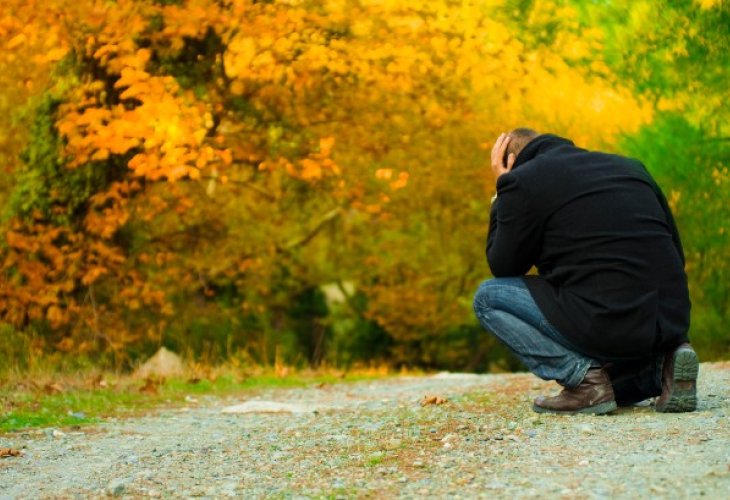Freedom Behind Bars: An Interview with the Chief Rabbi of the Prison Service
How do prisoners celebrate Passover in prison? Rabbi Wizner, the Chief Rabbi of the Prison Service, talks about the preparations for Pesach, spiritual growth in prison, and mental freedom. "My heart breaks over the prisoners' pain," he says, but he also mentions a broad spiritual awakening.

Have you ever wondered how the Festival of Freedom is celebrated behind bars? For Rabbi Yekutiel Yehuda Wizner, this is not a hypothetical question. As the chief rabbi of the Prison Service, he deals with this issue every year.
"The preparations for Pesach in prisons are divided into two parts," he explains. "One part is logistical — qualification, replacing utensils with Pesach utensils, purchasing matzahs, shmurah matzahs, and food with all the certifications. This requires a lot of work, of course. But the second part is the more challenging one: preparing the hearts. The spiritual preparations for Passover, which is a festival of freedom and a family holiday, are celebrated by prisoners in prison and without family."
How does a person feel knowing that all of Israel is busy shopping and preparing, traveling to celebrate with family – but he will stay behind? "It's a great heartbreak, " says Rabbi Wizner. "The prisoners are not busy with shopping and preparations, so they have too much time to think... to think about their wives and children, about the holiday they won't have, because only a minority goes home for Passover. My heart breaks over their pain. Technically, the Prison Service does above and beyond to provide all the Pesach needs, but emotionally, the fracture is real. To say that I don't shed tears every holiday eve? That would be a lie."
 Chief Rabbi of the Prison Service
Chief Rabbi of the Prison ServiceRabbi Wizner is responsible for 33 rabbis working in prisons across the country. "Every year we collaborate in an effort to help people feel freedom behind bars. Every year I say that freedom is not just a function of where you are, but how you feel. Someone who starts anew and isn't stuck in the past is already free. Conversely, someone outside prison but controlled by desires and impulses is a prisoner. Prison is very subjective."
Rabbi Wizner also looks optimistically to the future, to the years when prisoners return to celebrate with their families. "Our sages say that a person must see himself as if he came out of Egypt. Former prisoners have an advantage here: they know exactly how a prisoner feels and how sweet the sense of freedom is."
The prisoners celebrate the Seder without the presence of rabbinical prison staff. "Before I began my current role I was a military rabbi for 26 years, and except for one year, I always celebrated the Seder at some military base," says Rabbi Wizner. "I wish we could do that in prison, but we can't bring our families to prison, so each wing in prison celebrates its own Seder, led by a responsible prisoner appointed for that. In general, excluding security prisons, at all Israeli prisons, the Seder is properly celebrated."
A Time for Introspection
At the Seder table, not only religious prisoners sit, but almost everyone does. "Naturally, a person in prison makes a personal accounting. Many begin to feel that the values of Torah provide them with foundation and support. Jewish perception allows forgiveness since it's the basis for faith. In the religious community, we must believe that Hashem forgives transgressors because if we don't believe this, how can we expect Him to forgive us? Thank Hashem, I've seen hundreds of people arrive here non-religious and use imprisonment as a springboard to repentance and the service of Hashem. They leave here fully observant Jews."
What do you think about the phenomenon where every offender suddenly appears in court wearing a kippah?
"Those who pretend to get closer to Judaism only lose. Not only does the judge see it's a show, but even if he wears a kippah as big as a shtreimel, it doesn't exempt him from getting up for prayers early in the morning when his friends are still asleep. If you don't get up for prayer, you won't be considered religious. In prison, there's indeed a manifestation of 'an eye sees and an ear hears, and all your deeds are inscribed in a book.'"
The religious system existing today in Israeli prisons is quite impressive. Besides the religious wings, where prisoners study Torah from morning till night, Rabbi Wizner speaks of the ‘Madrasah’ program, which includes 1,100 prisoners from all over the country. "They study Torah from eight to one, and in the afternoon we bring volunteers to offer them ethical programs — including lecturers from Hidabroot."
Rabbi Wizner, a big believer in repentance and reform, often encounters questions regarding his ability to relate with trust and love to every prisoner. "Clearly, sometimes it's difficult, but I and the other prison rabbis believe that if we don't treat everyone with respect, we're sentencing them to remain in their downfall. What do we gain from giving up on the person? Both he and his family will be destroyed. There are not a few people in prison who are second and third generations of crime. We want to break this cycle."
How does one truly break the crime cycle?
"We operate from a perception of 'a righteous person falls seven times and rises.' I have disagreements with some professionals who constantly dig and stir in the muck of what a person did. I say we must be aware of the past and address it, but not always stir the stench. Instead, I recommend prisoners find a new path, change language, change attitude towards others. I urge them to start the change interpersonally even in prison, not to wait for release because then it won't happen. And indeed, we witness a lot of wonderful character work amongst the prisoners. Not true for everyone – but true for many."
In general, Israeli prisons, says Rabbi Wizner, strive greatly to reform the person — "for the sake of the individual and society."
How do you view your role?
"I am a Boyan Hasid, and my rebbe sent me to this role. I didn't know exactly what I was going into, but very quickly I connected to the job and thank Hashem for the privilege given to me. There's a story about Rabbi Chaim of Sanz who defined a rabbi's role as 'being a listening heart to the downtrodden and broken-hearted.' That's what I try to do. I would be happy if my whole community were released tomorrow, and I remained out of work. But meanwhile, it needs love, empowerment, and trust, and I hope I perform my task faithfully and pray not to make a mistake."

